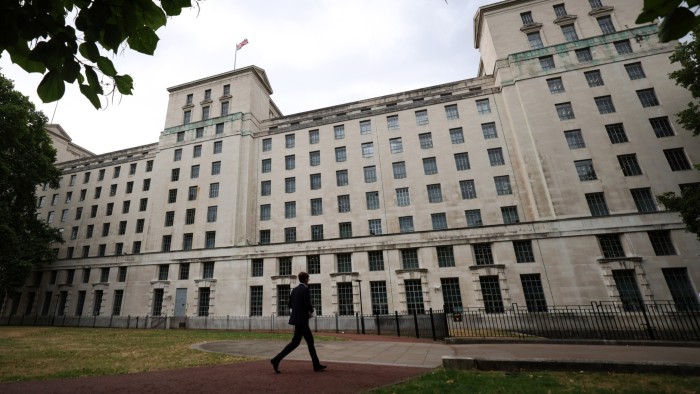Unlock the Editor’s Digest for free
Roula Khalaf, Editor of the FT, selects her favourite stories in this weekly newsletter.
The writer, a former government lawyer, is an FT contributing editor
For a court in the UK to grant a so-called “super-injunction” is supposedly an extraordinary event. These court orders where disclosure of the existence of the injunction itself is forbidden are exceptionally rare. Indeed, after a spate of such orders over ten years ago resulted in immense political criticism, super-injunctions were thought by many to no longer exist.
But one super-injunction has been in place, and its existence was revealed yesterday. This extraordinary court order itself covered up an extraordinary failure of the British state. An immense data breach was hidden from public and media view. It now seems this cover-up was unwarranted. In essence, the super-injunction should never have been granted.
The original data breach took place in 2022 but the British government was unaware of it until 2023. The data concerned thousands of Afghans who were seeking to resettle in the UK after assisting the country — work that left them at risk from reprisals by the Taliban.
Once aware of the breach the UK government sought a worldwide injunction — “contra mundum” — meaning anyone making an unauthorised disclosure anywhere would in theory face sanctions from the High Court in London. Such worldwide injunctions are common in commercial matters but for this purpose they are unusual.
The High Court, by its own volition, then converted the injunction into a super-injunction, where the existence of the order itself could not be published. The government did not even ask for this, but was content when it was granted. The government would then go on to seek renewal of this super status, and even went to the Court of Appeal to make sure the injunction stayed hidden.
In the meantime, an expensive and wide-ranging scheme for resettlement was put in place, all devised and implemented without any political acknowledgment or scrutiny. The whole policy was secret. Other than the shadow defence secretary, the opposition had no idea about it until they took office after the general election.
For nearly two years this data breach and subsequent resettlement policy remained hidden. The incoming Labour government continued what the outgoing Conservative government had started. Major news organisations, aware to varying degrees that something was up, complied with the order when it was disclosed to them. There were no leaks.
And there was no variation in the order. Even though the existence of such injunctions should be kept under constant review and not remain in place any longer than necessary, the order stayed in force.
The Ministry of Defence conducted an internal review. According to the High Court, it appears — sensationally — that the internal review showed it was questionable whether the injunction should have been sought and granted in the first place.
The judge, Mr Justice Chamberlain, says in paragraph 33 of the most recent judgment, that the assessments in the report “are very different from those on which the super-injunction was sought and granted”. He added that he had recently received a “witness statement which explains which of this material was available to those who undertook the initial assessments”.
In other words, the court seems to be pointing to the possibility that the MoD knew at the time that the injunction sought was not needed, but applied for — and was granted — it anyway. If this is the case then the injunction was not “strictly” necessary — it may not have been needed in the first place. As the judge delicately puts it, “It will be for others to consider whether lessons can be learned from the way the initial assessments in this case were prepared and whether the courts were, or are generally, right to accord such weight to assessments of this kind.”
One suspects no lessons will be learned. There will just be the usual shrug by the various organs of the state. The Information Commissioner’s Office has declared that there will be no regulatory action. Members of parliament at today’s Prime Minister’s Questions seemed generally unbothered at what had been kept from them. Neither the outgoing or incoming governments have any interest in making a fuss.
In the meantime, the courts have shown that they will grant a super-injunction that the government does not even ask for, on the basis of taking flawed assessments at face value and leaving them in place long after there is any need for them. An immense data breach and the scrambled policy intended to repair it will remain free of meaningful accountability.



